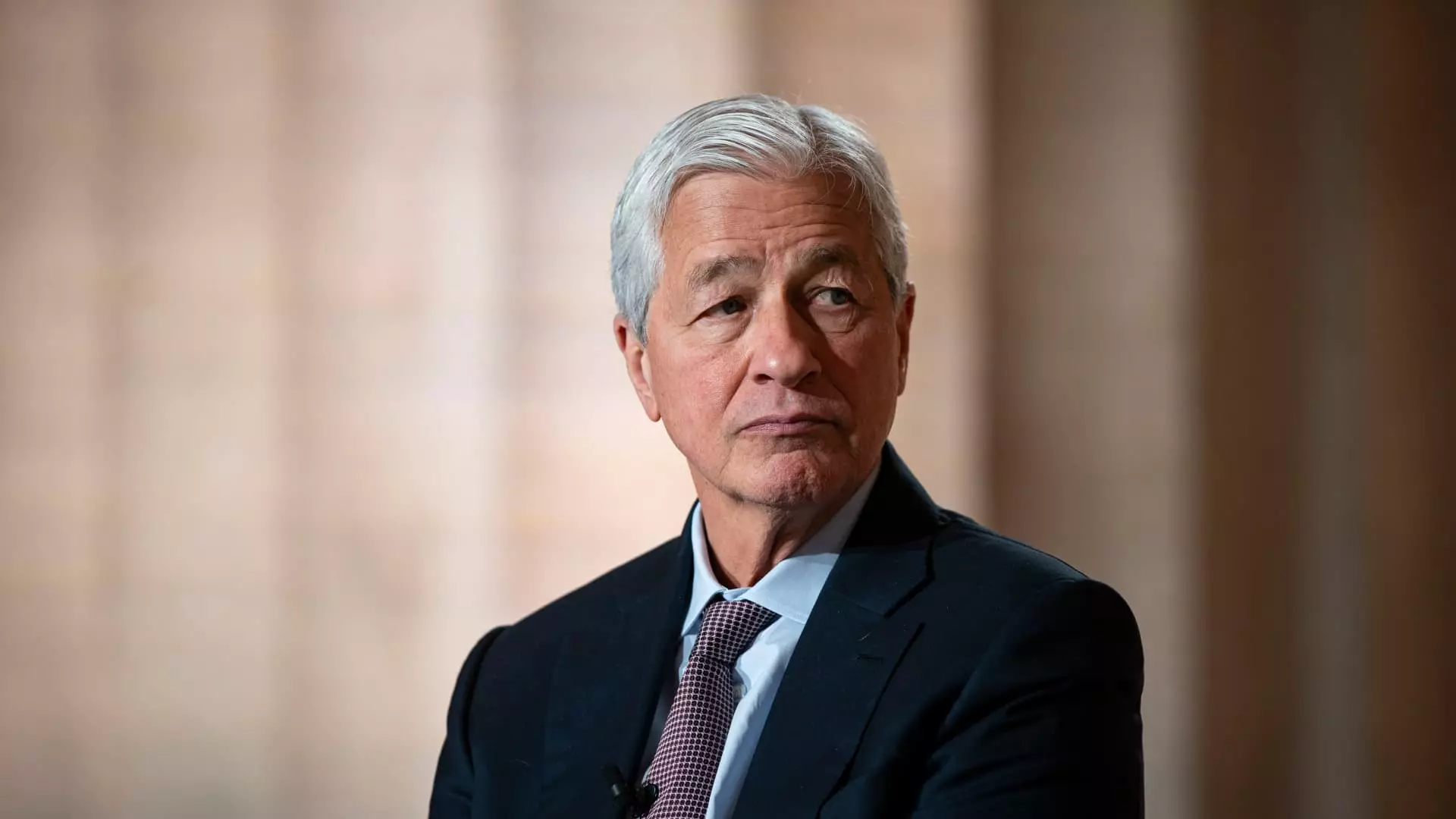In an alarming and candid statement, Jamie Dimon, the CEO of JPMorgan Chase, forewarned the inevitable economic fallout from the rising tensions between the U.S. and China. This isn’t merely financial verbosity; it’s a stark, shaking insight into an economy already teetering on the brink. With President Donald Trump’s aggressive tariffs becoming a self-inflicted wound on the U.S. economy, Dimon’s assertion that a recession is likely embodies the sheer gravity of the situation. The ongoing trade war has not just rattled markets; it has created a perfect storm of uncertainty and fear.
As tariffs balloon and stock vehicles spiral downward, one can’t help but witness the anxiety among everyday Americans. Dimon’s observations reflect an unsettling reality: when institutional titans signal recession, regular citizens feel it in their pockets. The sudden drop in the Dow Jones Industrial Average isn’t just numbers on a screen; it’s a precursor to widespread financial distress, leading individuals to reconsider their investments in retirement plans and even the security of simple savings. The market’s behavior is nothing but a mirror reflecting the disarray created by indecisiveness in trade negotiations and economic policy.
Wall Street’s Dreaded Sword of Damocles
The growing concerns from Wall Street amidst tariff skirmishes present a dismal narrative: investors are shaken, and market volatility is the new norm. Dimon noted that the staggering declines on the stock market feed into a cyclical dread, exacerbating fears of financial loss among consumers. We aren’t talking about mere speculation; the realities of a financial crunch loom larger than any optimistic market commentary might suggest. The striking correlation between market performance and consumer sentiment is unsettling. When financial giants like JPMorgan predict contraction in gross domestic product, it signals a dangerous sentiment that could adversely affect spending and investment.
This is where the notion of uncertainty hits the hardest. It is not just about fluctuating stock markets or waning economic indicators; the uncertainty leaks into all aspects of economic life. Consumers, unsure of the future, retreats from discretionary spending while businesses prepare for a potential downturn, further precipitating economic sluggishness. Dimon’s comment about which side of the economic spectrum the markets exist reflects the pervasive level of anxious anticipation that has gripped both Wall Street and Main Street alike.
Policy Pathways and Their Problematics
Notably, Dimon’s previous support for tariffs reveals the complexity woven into his latest warnings. How can one reconcile supporting a policy that has directly led to this disarray, all while advocating for trade deals? It underscores the convoluted nature of economic policymaking where goals and strategies appear to conflict horrifically. His suggestion to “take a deep breath” and negotiate may seem like sound advice, but it’s steeped in a tinge of desperation. When leaders speak in terms of hypothetical negotiations, it casts a pall over the administration’s current direction, exposing weaknesses and indecision that the market is quick to penalize.
Perhaps the most woeful irony is that even as Dimon calls for calm and resolution, the fear of unmitigated tariff retaliation from China hangs heavily over the economy. With the potential for tariffs to spike as China’s tit-for-tat gamble escalates, the notion of correction seems even more distant. Dimon’s call to arms for negotiation symbolizes a critical junction; it demands immediate attention yet seems all too easily lost amid political turbulence.
Institutional Guardianship Amidst Chaos
Simultaneously, the appointment of Michelle Bowman to oversee financial policymaking stands at a precarious intersection. Dimon’s push for her Senate confirmation resonates amidst the turmoil of economic uncertainty. In times like these, one must question: will institutional leadership navigate us through these turbulent waters, or will it merely serve as a facade? The potential resilience that Bowman’s expertise could offer is a beacon of hope—but it must be matched with rapid, effective responses from lawmakers.
As the gravity of the economic situation continues to draw fierce scrutiny and concern, the need for sound governance becomes indisputable. If policymakers cannot muster the courage to engage in forthright negotiations, the bleak forecasts will not just remain forecasts but evolve into self-fulfilling prophecies. In the wake of these economic tremors, it’s evident that a combination of dynamic leadership, strategic negotiation, and a clearer trade vision might be our only path to avoiding a dire economic catastrophe.

